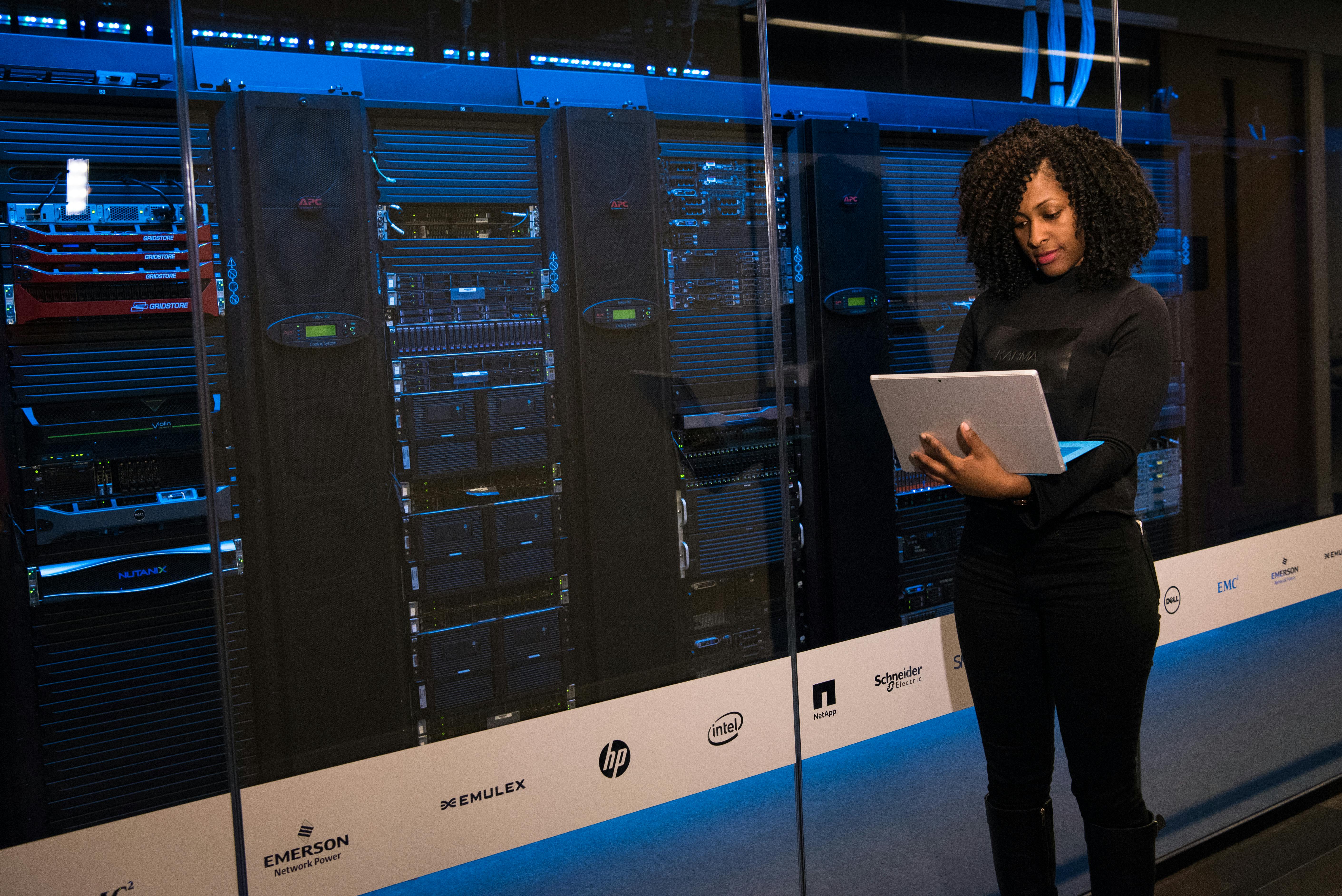 Interview Process
Interview Process
The process will include multiple rounds, each focusing on different aspects of your qualifications
and experience.
1). Initial Interview:
Discussion of Past Work and Experience: In this round, the interviewer will ask
about your previous
work experience, focusing on projects you've completed, challenges you've faced, and how you've
contributed to your team. Be prepared to discuss details from your resume, including specific
technologies you’ve worked with and how you’ve applied them in real-world scenarios.
Resume Review: The interviewer will go through your resume, asking you to elaborate
on the skills
and experiences listed. They may ask you to explain why you chose certain tools or approaches in
your past projects, and how those experiences have prepared you for this role.
2). Technical Round:
Practical Coding Challenge: During this round, you’ll be given a coding task or a
problem to solve
that reflects the type of work you’d be doing in this position. The task will test your ability to
write clean, efficient code and may involve working with algorithms, data structures, or solving a
real-world problem.
Technical Questions: Alongside the coding challenge, you may be asked technical
questions that test
your understanding of programming concepts, software development methodologies, and best practices.
This could include topics like object-oriented programming, database management, and software design
patterns.
The interview process is designed not just to evaluate your current skills, but also to understand
your potential for growth within the company. We’re looking for candidates who are not only
technically proficient but also motivated to learn and contribute to the team.
Web Developer
As a Web Developer, you will be responsible for creating and
maintaining high-quality websites and
web applications that meet the needs of our clients and users. Your role will involve working
closely with designers, project managers, and other developers to bring digital projects to life.
You'll ensure that websites are functional, user-friendly, and visually appealing across various
devices and browsers.
Key responsibilities include:
Front-End Development: Writing clean, efficient code using HTML, CSS, and JavaScript to create
responsive and interactive user interfaces.
Back-End Development: Working with server-side languages such as PHP, Python, or Node.js to manage
databases, server logic, and integrations with third-party services.
Cross-Functional Collaboration: Collaborating with designers to implement their vision while
ensuring the technical feasibility of UI/UX designs.
Testing and Debugging: Conducting thorough testing to identify and fix bugs, ensuring optimal
performance, and maintaining code quality.
Optimization: Enhancing website speed and scalability by optimizing code, images, and other web
assets.
The ideal candidate will have a strong understanding of web development frameworks and content
management systems (CMS) like WordPress, Laravel, or Django. Familiarity with version control
systems such as Git is essential. You should be comfortable working in a fast-paced environment,
adapting to new technologies, and continuously improving your skill set.
Software Engineer
As a Software Engineer, you will be integral to developing,
testing, and maintaining software
solutions that meet our clients' needs and drive the success of our projects. Your role will involve
working with a team of engineers and developers to design, implement, and optimize software
applications. You'll tackle complex problems, work with various technologies, and contribute to all
phases of the software development lifecycle.
Key Responsibilities:
Software Development: Write clean, scalable, and efficient code in various programming languages
such as Java, Python, C++, or JavaScript. Develop new features and maintain existing systems based
on project requirements.
System Design: Collaborate with team members to design software architectures and frameworks. Ensure
designs meet technical and business requirements.
Testing and Debugging: Perform unit testing and debugging to ensure software is robust and reliable.
Identify and resolve issues or bugs in a timely manner.
Code Review: Participate in code reviews to maintain high-quality standards and provide constructive
feedback to peers.
Documentation: Document development processes, code changes, and system configurations to support
knowledge sharing and project continuity.
Collaboration: Work closely with cross-functional teams, including product managers, designers, and
other engineers, to deliver comprehensive solutions. Communicate effectively to understand project
requirements and provide updates.
Qualifications:
Education: Bachelor’s degree in Computer Science, Engineering, or a related field, or equivalent
practical experience.
Experience: Proven experience in software development, with a strong portfolio of projects or
previous work. Familiarity with version control systems (e.g., Git) and agile development
methodologies.
Technical Skills: Proficiency in one or more programming languages and a solid understanding of
software engineering principles, algorithms, and data structures. Experience with frameworks,
libraries, and tools relevant to your technology stack.
Problem-Solving: Strong analytical and problem-solving skills with the ability to troubleshoot and
resolve complex issues.
Team Player: Ability to work collaboratively in a team environment, adapt to new technologies, and
contribute to a positive team culture.
The ideal candidate is passionate about technology, eager to learn, and committed
to delivering high-quality software solutions. You should be able to work independently as well as
part of a team, handle multiple tasks, and adapt to the fast-paced nature of the software
development industry.
App Developer
As an App Developer, you will play a crucial role in creating, optimizing, and maintaining mobile applications that provide an exceptional user experience. You will work closely with cross-functional teams to design, develop, and deploy mobile apps for both Android and iOS platforms. Your expertise in mobile development will help bring innovative app ideas to life while ensuring high performance, scalability, and reliability across different devices.
Key Responsibilities:
Mobile App Development: Write clean, efficient, and maintainable code to develop mobile applications for Android and iOS. Build new features and optimize existing functionalities based on project requirements and client needs.
UI/UX Design Collaboration: Collaborate with designers to implement user-friendly and visually appealing mobile interfaces. Ensure that the mobile apps deliver a seamless and intuitive experience across different screen sizes and devices.
Testing and Debugging: Perform thorough testing, including unit tests and integration tests, to ensure apps are free from bugs and errors. Debug and resolve issues reported by users or identified during testing to enhance app performance and user experience.
Performance Optimization: Continuously monitor and improve the performance, speed, and responsiveness of mobile applications. Identify areas for optimization and apply best practices to ensure a smooth user experience, even under heavy usage.
Cross-Platform Compatibility: Work with frameworks like React Native or Flutter to build cross-platform apps that function seamlessly on both Android and iOS platforms, ensuring code reusability and reducing development time.
App Maintenance and Updates: Regularly update mobile apps to keep them compatible with new operating system versions, fix bugs, and add new features as required. Ensure timely updates to keep apps up to date and relevant in the ever-evolving mobile app ecosystem.
Collaboration: Work closely with product managers, backend developers, and quality assurance teams to ensure the successful delivery of mobile applications. Communicate effectively to understand project requirements and deliver high-quality solutions on time.
The ideal candidate for this role is passionate about building innovative mobile applications, with a focus on performance and usability. You should be comfortable working independently and as part of a team, adapting to new tools and technologies, and continuously enhancing your skill set. A strong commitment to delivering high-quality apps on time, along with the ability to tackle complex problems, makes you a perfect fit for this position.
UI/UX Designer
As a UI/UX Designer, you will be responsible for creating user-centered designs that provide seamless, intuitive, and engaging experiences for users. You will work closely with product managers, developers, and other stakeholders to design and enhance digital products, ensuring that the interface and user experience are visually appealing, functional, and easy to navigate. Your role is critical in shaping the look, feel, and usability of applications, websites, and platforms, driving user satisfaction and engagement.
Key Responsibilities:
User-Centered Design: Focus on understanding user needs, behaviors, and challenges through research and testing to create intuitive, accessible, and visually pleasing designs. Develop user personas and journey maps to inform design decisions.
Wireframing & Prototyping: Create wireframes, mockups, and interactive prototypes to demonstrate design concepts and user flows. Work iteratively to refine designs based on feedback from users, stakeholders, and developers.
UI Design: Design visually engaging user interfaces that align with brand guidelines, ensuring consistency across all digital touchpoints. Choose appropriate colors, typography, and design elements to enhance user interaction and experience.
Usability Testing: Conduct usability testing and gather user feedback to identify pain points and areas of improvement. Implement feedback to ensure that designs meet the needs and expectations of the target audience.
Collaboration with Development Teams: Work closely with developers to ensure the seamless implementation of designs. Provide necessary design assets, and collaborate to overcome any technical constraints while maintaining design integrity.
Responsive and Adaptive Design: Ensure that designs are optimized for multiple devices and screen sizes, from desktops to mobile devices, providing a consistent experience for all users.
The ideal candidate for this role is a creative, user-focused designer with a passion for improving digital experiences. You should have a deep understanding of design principles, combined with a strong ability to empathize with users and deliver solutions that meet both user and business goals. The ability to iterate quickly, collaborate effectively in a team environment, and stay updated with the latest design trends and tools will make you a perfect fit for this position.
Data Scientist
As a Data Scientist, you will be responsible for analyzing complex data to help organizations make data-driven decisions. Your role involves collecting, processing, and interpreting large sets of structured and unstructured data, applying statistical models, and using advanced algorithms to uncover valuable insights. You will collaborate with cross-functional teams to transform raw data into actionable strategies, driving improvements in business operations, and ensuring data-driven growth.
Key Responsibilities:
Data Collection and Cleaning: Gather and preprocess large datasets from various sources, ensuring data is accurate, complete, and ready for analysis. Handle missing data and outliers to ensure the quality of the datasets.
Data Analysis and Modeling: Apply statistical and machine learning techniques to analyze complex data, build predictive models, and uncover trends and patterns. Use tools like Python, R, and SQL to create actionable insights from the data.
Data Visualization: Create clear and meaningful data visualizations using tools like Tableau, Power BI, or custom Python/R visualizations to communicate findings effectively to both technical and non-technical stakeholders.
Collaboration with Teams: Work closely with business leaders, product managers, and engineers to understand business goals and requirements. Provide data-driven recommendations to guide decisions and strategies.
Model Evaluation and Optimization: Continuously evaluate the performance of predictive models and algorithms. Implement improvements based on feedback and model performance to enhance accuracy and efficiency.
Qualifications:
Education: A degree in Data Science, Computer Science, Statistics, Mathematics, or a related field. A master’s or PhD is often preferred for senior roles.
Experience: Proven experience as a Data Scientist, with hands-on experience in data analysis, statistical modeling, and machine learning techniques. A strong portfolio of past projects and accomplishments is beneficial.
Technical Skills: Proficiency in data science tools and programming languages such as Python, R, SQL, and machine learning libraries (e.g., TensorFlow, Scikit-learn). Familiarity with cloud platforms like AWS, Azure, or Google Cloud is a plus.
Problem-Solving Skills: Strong analytical thinking and problem-solving abilities, with the capacity to extract meaningful insights from complex data and translate them into business solutions.
Database Handler
As a Database Handler, you will be responsible for managing, maintaining, and optimizing databases to ensure efficient data storage, retrieval, and integrity. You will play a key role in supporting the organization’s data-driven applications by ensuring that databases are structured, secure, and scalable. Your role will involve designing, implementing, and administering databases while ensuring smooth data flow, consistency, and high performance across various systems and platforms.
Key Responsibilities:
Database Design and Architecture: Design and create databases based on business needs, ensuring that they are efficient, scalable, and meet data requirements. Define the structure of databases, including tables, relationships, and indexes, to optimize performance and ensure data integrity.
Data Management and Maintenance: Oversee the day-to-day management of databases, including monitoring and ensuring data accuracy, security, and accessibility. Perform routine backups, restore operations, and ensure data consistency across different systems.
Query Optimization: Write and optimize SQL queries to improve the performance of data retrieval operations. Analyze slow-performing queries and optimize them to enhance system performance.
Database Security: Implement and maintain database security protocols to ensure that sensitive data is protected from unauthorized access. Use encryption, access controls, and regular audits to maintain high levels of security.
Data Integration: Ensure smooth integration of databases with other software applications and systems. Work with developers to implement data exchange processes and ensure seamless data flow between different platforms.
Qualifications:
Education: A degree in Computer Science, Information Technology, or a related field, or equivalent hands-on experience in database management.
Experience: Proven experience in managing databases, with a strong understanding of database administration, design, and optimization. Experience with relational databases (e.g., MySQL, PostgreSQL, SQL Server) and NoSQL databases (e.g., MongoDB, Cassandra) is beneficial.
Technical Skills: Proficiency in SQL and experience with other query languages. Familiarity with database management tools, optimization techniques, and backup/recovery procedures. Knowledge of cloud-based database platforms (e.g., AWS RDS, Azure SQL) is a plus.
Problem-Solving: Strong analytical skills with the ability to troubleshoot complex database issues, identify performance bottlenecks, and implement effective solutions.
The ideal candidate for this role is someone with strong technical skills, a deep understanding of database management, and a commitment to ensuring high performance and security in all database-related processes. You should be able to efficiently design, optimize, and troubleshoot databases, while always keeping security and performance at the forefront of your work. A proactive mindset, along with excellent communication and collaboration skills, will allow you to work seamlessly with cross-functional teams and ensure that database systems contribute effectively to the success of the organization.
 Interview Process
Interview Process




